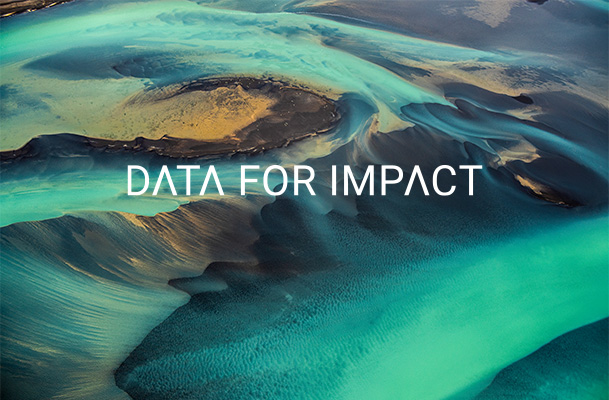It’s challenging for companies to consistently measure their environmental impact and prioritize the actions they need to take to reduce it. But with data and artificial intelligence, it’s possible to accurately measure the impact of an activity and effectively guide decision making while adopting best practices for increased energy sobriety in digital business. This is what Artefact, a leading international data transformation and consulting company, demonstrates.
Companies often struggle to measure their environmental impact. It may be difficult for them to gather all the data they need, or they may simply not have control over it. They can’t know, for example, how their customers will use their products once they’ve purchased them and what impact this will have on the environment. To better estimate this impact, companies can turn to Artefact’s data experts. They advise large companies on how to turn data into business value and focus more on the potential of data to positively impact the environment.
An increasingly restrictive legislative framework
By 2024, companies will be required to produce and publish their non-financial information, including their annual carbon footprint.
explains Margot Millory, Consulting Manager in charge of Sustainability at Artefact.
Two companies might end up with extremely different orders of magnitude simply because they don’t have the same measurement methods or don’t take the same emission factors into account. Artefact offers to assist companies by capitalizing on the entire data value chain, from data strategy to data governance to implementation, all with real consulting support to guide decision making towards greater efficiency. The company is already working with many sectors (consumer products, luxury goods, telecommunications, etc.), but more and more business activities will be impacted by these issues, as evidenced by the CSRD (Corporate Sustainability Reporting Directive), which now sets the standards for non-financial reporting for 50,000 companies in Europe.
Data governance for energy sobriety in digital activity
As with many of the challenges facing companies, the creation of a reliable, sustainable database is an essential prerequisite for implementing a strategy to reduce environmental impact. Artefact’s sustainable data governance offer enables its clients to benefit from a clean and structured data repository, a real added value for the organization.
explains Vincent Luciani, CEO of Artefact.
This exercise is essential for companies to identify missing data and get up to speed in order to collect and structure it and improve its quality. As a result, they’ll be able to develop automated and sustainable reporting tools to serve as the foundation for building a realistic environmental impact reduction trajectory.
Best practices for responsible digital activity
Artefact’s clients are increasingly integrating extra-financial logic into their reasoning. In response to this evolution, the company also assists them in their efforts to reduce their carbon footprint through use cases based on data science and AI: inventory optimization, waste reduction and improved delivery times.
Digital technology is currently responsible for 2.5% of national GHG (greenhouse gas) emissions, and these could increase by 60% by 2040. Artefact wants to minimize the negative external factors linked to its activity through the promotion of best practices to implement data/AI projects responsibly, in a logic of energy sobriety. To this end, Vincent Luciani and Margot Millory have joined the Institut Numérique Responsable (Responsible Digital Institute), a think tank that focuses, among other things, on reducing the economic, social and environmental footprint of digital technology.
explains Vincent Luciani.
Environmental initiatives at the heart of future work models
Today, Google, Microsoft and Amazon are all capable of completely transforming the market with new technologies. Artefact is optimistic about these changes, convinced that technology can offer many benefits, and that those who produce it are equally aware of environmental issues.
explains Vincent Luciani.
It’s likely that companies will launch environmental initiatives or place the environment at the heart of their work model. Artefact sees this as a motivating factor: a new way of thinking with different constraints, different stakeholders, and multiple priorities, as different KPIs are involved. The companies supported by Artefact used to have a customer-centric approach, which puts the customer at the heart of the company’s activity. But their priorities are changing, driven by growing pressure from consumers who now demand full transparency and concrete action from the companies whose goods and services they consume. “Our business is evolving towards an approach that puts the citizen and accountability at the center of the company’s activity,” explains Vincent Luciani.
Education: a pillar of sustainable digital transformation
Companies are seeking to recruit trained people to work on data-related projects; there is also a real need for training in sustainable development and environmental impact. Through its Artefact School of Data, which teaches data-related jobs to people in professional retraining, Artefact tackles important notions such as adopting best practices in order to implement frugal algorithms, measuring the carbon impact of an e-commerce chain or establishing an accurate sales forecast in order to prevent food waste, as carried out in the bakery and pastry department of Carrefour hypermarkets.

 BLOG
BLOG






